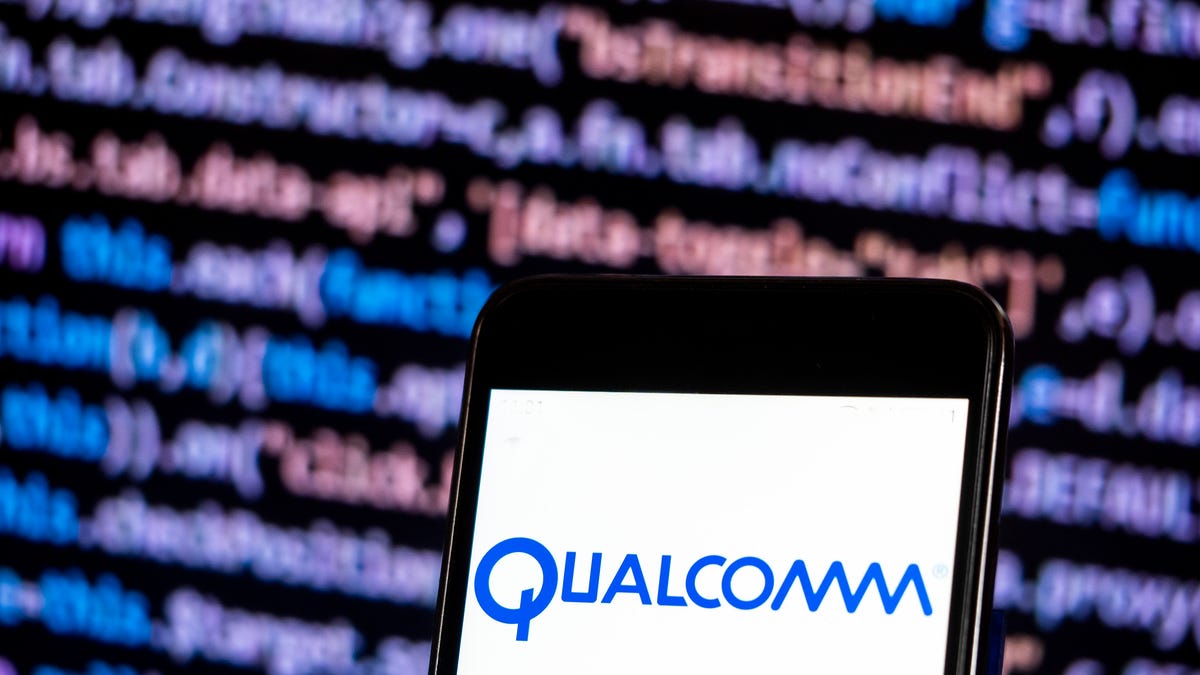Qualcomm bets $100M on new AI venture fund
The company will look for startups focused on artificial intelligence for devices.

Qualcomm plans to invest millions in AI startups.
When it comes to AI, Qualcomm's betting big.
The company said on Wednesday that it plans to start a venture fund that will invest at least $100 million in early stage startups working on artificial intelligence. In particular, the fund will look at companies finding ways to do intensive data processing on devices like smartphones and security cameras instead of in remote cloud systems.
"If you look at the smartphone today, this is one of the biggest AI platforms," Quinn Li, head of Qualcomm Ventures, said in an interview. "We want to make edge AI a ubiquitous platform."
Qualcomm is just the latest company to make big investments in artificial intelligence. Companies such as Google have long focused on the technology, and handset giant Samsung said in June that its Silicon Valley-based Samsung NEXT business had launched a fund to invest in early-stage startups devoted to "solving AI problems, as well as those using AI to solve computer science problems."
Artificial intelligence has the potential to change the way we use technology and even live. Anyone who carries a modern smartphone uses AI through Apple's Siri or Google's Assistant. Meanwhile, Amazon's Alexa has become popular for speakers and other smart home devices. Samsung jumped into the market last year with its Bixby digital assistant for controlling your Galaxy smartphone, TV or refrigerator.
As the world's biggest maker of chips for mobile devices, Qualcomm hopes to get insight into the future of AI and what's needed from its processors. The company and many others in the semiconductor industry have been focusing on new AI chips that can rapidly process information and return results to users.
On Wednesday, Qualcomm unveiled an investment in AnyVision, a startup that developed body and facial recognition technology "that is both highly accurate and mitigates privacy concerns through the use of on-device AI."
AnyVision has "a unique approach to AI, particularly around facial recognition," Li said. Its technology performs well in "real-life scenarios where you may not have the perfect shots of faces."
Rethinking the SoftBank Vision Fund?
When deciding where to invest its money, the main consideration for Qualcomm is finding companies that fit well with its chief business, supplying chips that act as the brains of devices and connect to wireless networks. The chipmaker has been investing in startups since 2000 and focuses on mobile/5G, AI, automotive, the internet of things, and networking companies.
Qualcomm Ventures' investment companies have included Ring, which Amazon purchased, and Xiaomi, one of the biggest smartphone companies in China.
It also invested in SoftBank's nearly $100 billion Vision Fund, which reportedly has been changing the face of startup investments. Li said Qualcomm Ventures became a "small" investor in the Vision Fund after being approached by SoftBank, but he declined to specify how much it contributed.
He views the fund as a potential "kingmaker" through the bets it makes -- and the large amount of cash it gives startups.
"They do invest a lot of money," Li said. Those funds give one company the "ability to really scale the business past the competition" by investing more in R&D, sales and marketing.
Still, Qualcomm may not invest in a possible second Vision Fund, Li said.
SoftBank and the Vision Fund have faced scrutiny recently over their ties to Saudi Arabia. The Middle Eastern country contributed $45 billion to the first fund and said in October that it would contribute the same amount to a second fund.
But some companies no longer want to have ties to Saudi Arabia following the death last month of Jamal Khashoggi, a prominent Saudi dissident and critic of the Saudi government. The government of Turkey said The Washington Post columnist was strangled and dismembered at the Saudi Consulate in Istanbul on Oct. 2 by a 15-member assassination squad, as noted by CNET parent company CBS. Saudi Arabia ultimately said its agents strangled Khashoggi during a fight inside the consulate.
But many people, including some US lawmakers, believe Saudi Crown Prince Mohammed bin Salman had some role in ordering the murder. And the CIA this month substantiated the report about the crown prince's role, according to CBS.
Li on Wednesday said Qualcomm Ventures isn't sure yet if it would invest in a second Vision Fund, in light of the controversy surrounding Saudi Arabia.
"For the first one, we had a long relationship with SoftBank, and the money they raised from the Saudis ... wasn't an issue," Li said. "Now, going forward, certainly we'd have to understand what it means to be investing with the Saudis."
He noted there are already concerns about the Saudi connection, no matter what conclusions are reached about Khashoggi's death.
"We have a lot of relationships with the US government," Li said. That includes selling it mobile technology. "We need to take into account at the Qualcomm level the business risk involved."
First published Nov. 28, 2:30 p.m. PT
Update, 4:53 p.m.: Adds information from an interview.
CNET's Holiday Gift Guide: The place to find the best tech gifts for 2018.
Taking It to Extremes: Mix insane situations -- erupting volcanoes, nuclear meltdowns, 30-foot waves -- with everyday tech. Here's what happens.

